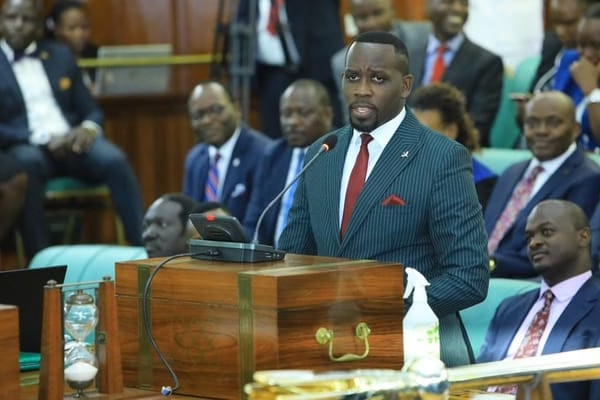Joel Ssenyonyi, the Leader of the Opposition (LoP), has raised serious allegations about a “cash bonanza” in Parliament, claiming that each legislator is being given Shs100 million in return for supporting the recently passed Coffee Bill. He also suggested that this payout is part of a larger strategy aimed at preparing MPs for the proposed amendment to the UPDF Act, which would allow civilians to be tried in the Court Martial
Ssenyonyi took to social media on Tuesday evening to claim that both members of the ruling National Resistance Movement (NRM) and select opposition MPs were being offered Shs100 million each. He further asserted that the payments were a form of appreciation for their support of the Coffee Bill and were also intended to rally MPs behind the amendment to the UPDF Act, despite a Supreme Court ruling on the matter.
“We’ve learned that money is surreptitiously exchanging hands in Parliament. Information reaching us is that they are giving each NRM MP (and a few selected opposition MPs) 100 million shillings, as appreciation for the Coffee Bill and to prepare them for the proposed amendment to the UPDF Act,” Ssenyonyi said.
Reports indicate that the controversial funding was drawn from the Shs4 trillion supplementary budget, which Parliament approved last month. MPs, regardless of political affiliation, are set to enter the Easter break significantly wealthier, each receiving Shs100 million.
Reliable sources revealed that NRM MPs received their payments from the Office of the President on Level 4 of Parliament, while opposition and independent MPs collected theirs from Level 5 of the Parliament building. These revelations have raised questions about the integrity of the process and whether the funds are being used strategically to influence MPs on upcoming legislation
The funding has sparked mixed reactions within Parliament. Some MPs confirmed that the money was intended for mobilization purposes, while others have either remained silent or suggested that the funds are meant to support government initiatives. The controversy has fueled growing calls for accountability and transparency in Parliament, especially at a time when concerns about corruption are intensifying.
This isn’t the first time such a “cash bonanza” has been reported. In June 2022, rumors surfaced that MPs had each received Shs40 million to pass a supplementary budget, even before the budget for the 2022/23 financial year had been presented. The recurrence of such incidents has raised alarms about the integrity of the legislative process and the potential for undue influence.
With 556 members in the 11th Parliament, if each legislator receives Shs100 million, the total payout would amount to a staggering Shs55.6 billion. This has sparked significant concern among taxpayers, especially given the country’s ongoing struggles with economic management and rising national debt.
As the political controversy surrounding the cash bonanza continues to unfold, questions remain about the purpose of these payments and the implications for transparency within Parliament. Ugandans are increasingly demanding answers about the use of public funds, and whether these payouts are part of a broader strategy to influence upcoming legislative decisions.



